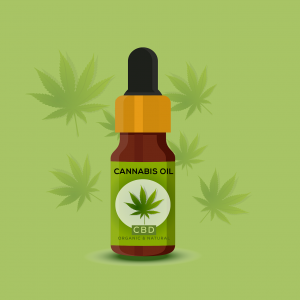
Introduction:
Hemp and cannabis are two terms commonly associated with the Cannabis sativa plant. While they share many similarities, they have distinct characteristics that set them apart, both medically and legally. Understanding these differences is essential, as they have significant implications for medical applications, legal frameworks, and consumer access. In this article, we will delve into the medical and legal disparities between hemp and cannabis, shedding light on their unique properties and applications.
I. Botanical and Chemical Composition:
Hemp and cannabis are both members of the Cannabis sativa species, but they have different compositions, particularly in terms of their cannabinoids.
Hemp:
Hemp is characterized by its low tetrahydrocannabinol (THC) content, typically below 0.3%. THC is the psychoactive compound responsible for the “high” associated with cannabis. Hemp, however, contains higher levels of cannabidiol (CBD), a non-intoxicating compound known for its potential therapeutic benefits. Hemp is primarily grown for its industrial uses, such as fiber, textiles, and CBD extraction.
Cannabis:
Cannabis, also known as marijuana, is cultivated for its medicinal and recreational properties. It contains higher levels of THC, ranging from a few percent to over 30%, depending on the strain. The presence of THC in cannabis is responsible for its psychoactive effects.
II. Medical Applications:
Hemp and cannabis have divergent medical applications owing to their distinct cannabinoid profiles.
Hemp:
Due to its low THC content, hemp-derived CBD has gained significant attention in the medical field. CBD exhibits potential therapeutic properties, including analgesic, anti-inflammatory, and anxiolytic effects. It is commonly used in the management of chronic pain, epilepsy, anxiety disorders, and certain neurological conditions.
Cannabis:
Cannabis has a wider range of potential medical applications, primarily due to the presence of THC. It is commonly used for pain relief, appetite stimulation in cancer patients undergoing chemotherapy, and alleviating symptoms of conditions such as multiple sclerosis, glaucoma, and nausea. Additionally, cannabis may be prescribed to manage certain mental health conditions, such as post-traumatic stress disorder (PTSD) and depression.
III. Legal Frameworks:
The legal status of hemp and cannabis varies considerably across jurisdictions, which has implications for cultivation, distribution, and consumer access.
Hemp:
In many countries, including the United States under the 2018 Farm Bill, hemp is classified as an agricultural commodity and is legally distinct from cannabis. This designation allows for the regulated cultivation, processing, and sale of hemp and hemp-derived products, such as CBD. However, strict regulations are often in place to ensure compliance with THC content limits.
Cannabis:
The legal status of cannabis varies widely across jurisdictions. Some countries and states have implemented comprehensive medical cannabis programs, allowing patients to access cannabis for therapeutic purposes with a physician’s recommendation. Moreover, a growing number of regions have also legalized cannabis for adult recreational use, allowing for regulated production, distribution, and consumption.
IV. Consumer Considerations:
When it comes to purchasing and using hemp and cannabis products, consumers should be aware of the following factors:
THC Content:
Consumers should check the THC content of the product, as this determines its psychoactive potential. Hemp-derived CBD products typically contain negligible levels of THC, ensuring non-intoxicating effects. Cannabis products, on the other hand, can have varying THC concentrations, affecting the user’s experience.
Product Quality and Safety:
Regardless of whether it is hemp or cannabis-derived, consumers should prioritize purchasing products from reputable sources. Quality control measures, third-party testing, and adherence to regulatory standards ensure the safety and consistency of the products.
Conclusion:
Hemp and cannabis are distinct in terms of their botanical composition, medical applications, and legal frameworks. While hemp predominantly offers CBD-rich products with minimal THC content, cannabis provides a broader range of therapeutic applications due to its higher THC levels. Understanding these differences is crucial for consumers, healthcare professionals, and policymakers alike as they navigate the evolving landscape of cannabis and hemp-based treatments and regulations.